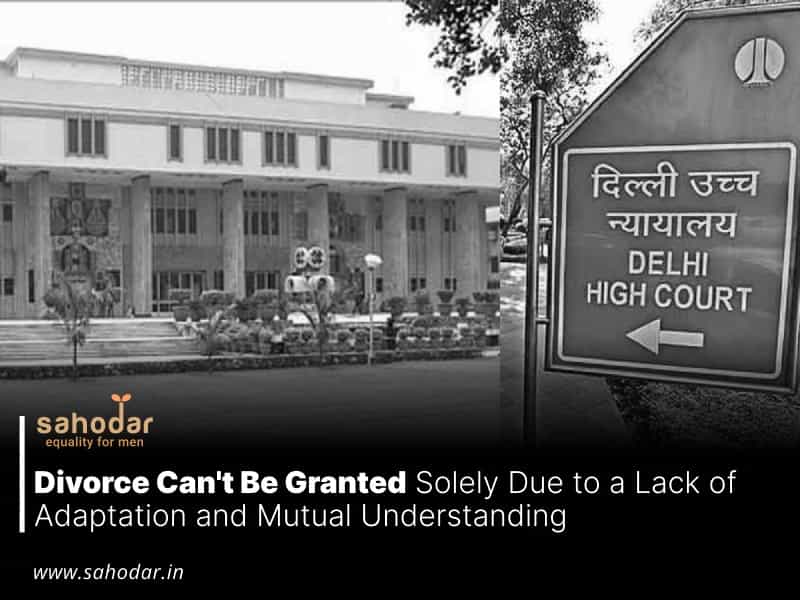Recently, the High Court of Delhi upheld the dismissal of a divorce petition in a marital dispute involving Gaurav Gulati, the petitioner, and Gita Pravin, the defendant. The petitioner had initiated legal proceedings under Sections 13(1)(ia) and 13(1)(ib) of the Hindu Marriage Act, 1955, citing allegations of cruelty and abandonment against the respondent.
In the verdict announced on March 1, 2024, Justice Neena Bansal Krishna and Justice Suresh Kumar Kait meticulously reviewed the evidence presented by both parties. The court emphasized the petitioner’s assertions of mistreatment and refusal to reside together by the respondent, alongside the respondent’s counterarguments concerning the petitioner’s behavior.
“Unfortunate are the matrimonial disputes where the fountainhead of friction inter se the spouses is mere lack of adjustment, understanding, and the will to stay together,” remarked Justices.
After a comprehensive review, the court identified inconsistencies in the claims made by the petitioner and acknowledged the respondent’s purported attempts at reconciliation, which were reportedly rejected by the petitioner. “None of the assertions made by the petitioner/husband were adequately supported,” the court declared.
Concerning the accusation of desertion, the court noted that the petitioner did not provide sufficient evidence to demonstrate that the respondent voluntarily departed from the marital residence without valid cause. “The petitioner has failed to substantiate the claim that the respondent deserted him,” remarked the bench.
Despite acknowledging the irretrievable breakdown of the marriage, the court emphasized the principle under Section 23(1)(a) of the Hindu Marriage Act, 1955. “To grant a Divorce in the present case would be to add a premium to the recalcitrant and unreasonable conduct of the appellant,” concluded the court.
In conclusion, the High Court upheld the decision to dismiss the divorce petition, stating that it “does not call for any interference.”

